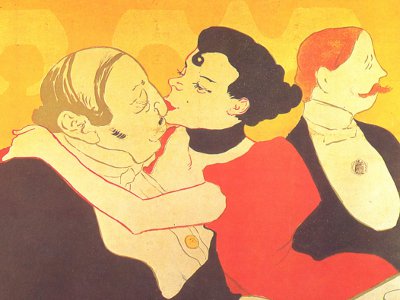Prostitution and the Making of Pornography

By J.D. Obenberger, attorney at law
YNOT – The subject of prostitution and the making of explicit video becomes topical in light of threats recently made by Maricopa County, Ariz. (Phoenix, Tempe, Scottsdale) chief prosecutor Bill Montgomery. Two weeks before the Phoenix Forum was set to take place, Montgomery’s comments raised the prospect that he just may prosecute people in the adult industry for crimes related to prostitution.
Tough talk isn’t ever hard during an election year. But if Montgomery is going to get any convictions, he’s got to convince Arizona judges to turn around and change their reasoning.
Not that many years ago, I defended a man charged with obscenity and, in the middle of a long conversation with the prosecutor, that state’s attorney suggested he was likely to bring prostitution charges as well. My client was a very portly, middle-aged man. I invited the prosecutor to do just that. I told him that I would dress my client up in black hotpants with suspenders and parade him in front of the jury and smile when I told those 12 good jurors the prosecutor thinks my client is a hooker.
Those prostitution charges never came, and we beat that case cold.
There were prudent reasons beyond humor why it would have been unwise for the prosecutor to bring prostitution charges. Should we have prevailed on the First Amendment defense, as we expected we would, the prosecutor risked being the attorney who put a welcome sign aimed at pornographers over every entrance to the State of Illinois. The prosecutor decided the potential outcome was not worth the gamble.
The only state in which the issue is a slam-dunk as a matter of law is California because of State v. Freeman. The Freeman decision is firmed-up with recourse not only to the intent of the legislature, but also to First Amendment values, federal and state, and because of the independent state law basis for its decision, federal courts never had a chance to review it.
The Supreme Court of New Hampshire used the reasoning of Freeman and came to a conclusion quite friendly to the First Amendment and protected expression, concluding (though it’s far less than certain they were intellectually required to do so) New Hampshire’s prostitution statute did not reach paid videography because the prostitution statute in issue required a purpose of sexual gratification that had not been made out in the state’s case.
A felony trial court in Manhattan used the reasoning of Freeman to deny a pandering defendant’s motion that she was being unfairly prosecuted because pornographers doing the same thing get a pass.
When the creation of video was not an issue, when no purpose for the exercise seemed to exist except the sexual gratification of the payor, the courts have shown no willingness to protect this activity on free speech grounds. See what happened to pro-se defendant Steve Wahl and capably represented former Lutheran minister Kittilstad. Not a pretty picture for either.
Recently, the chief prosecutor in Maricopa County, Ariz., where Phoenix lies, has been proclaiming the production of porn in his county is subject to prosecution under the state’s prostitution statutes. He’s got one case in his quiver, State v. Taylor, or so it appears at first blush — a 1990 case that did not involve the creation of any video for publication or otherwise, just a couple of dancers in a peep show.
Curiously, the Arizona Court of Appeals has no issue with the holding in Freeman. The Arizona author-jurist distinguishes the facts of Freeman from the facts at bar, distinguishing the immediate arousal of a patron on the other side of the glass from defendant Taylor from the distant “gratification in the hands of remote consumers” (there is some real artistry involved in that judge’s choice of words) involved in videography. The dichotomy between an immediate customer paying for immediate gratification and the film maker producing content for remote gratification by consumers down the line seems to be sharp in all of the cases assessed here, including the Taylor case in Arizona. In order to prevail in prosecuting an adult content producer in Arizona for a prostitution offense related to the essential acts necessary to create explicit video, a prosecutor will need to convince Arizona judges to reject the analysis the Taylor court accepted.
Taylor was a peep show dancer, and the court said her conduct was miles away from what the California Supreme Court protected in Freeman. Just think about what a prosecutor risks politically if, after all that inflammatory language, he loses the case on First Amendment grounds.
If he has any common sense, Montgomery won’t direct arrests or take any such case to court unless he’s got something else in the case that’s a slam dunk: guns, drugs, underage participants, off-camera criminal misbehavior or the like. It would not surprise me if the county attorney at issue is on the prowl for something like that now. I think he wants to scare the porn industry away, endear himself to the moral right, but take as few chances as possible in an election year. It’s always possible that someone’s recklessness might hand him those things on a silver platter.
None of the established cases protect a POV videographer from an allegation of prostitution, and the sexual gratification involved in such videography just may be held by the courts to be a distinguishing factor: Because the filmmaker participates in the sexual conduct, POV videography creates more risk than exists in hands-off content creation.
To this point in time, I know of no cases in which the federal Mann Act or the Travel Act have been used against any defendant actually involved in the commerce of adult films, and that also may be a function of the risk a prosecutor might create case law enshrining very conspicuously the First Amendment protection afforded to sexually explicit commercial videography.
That said, it is an open question how states that have not ruled on the subject may rule in the future. The existence of that risk is probably far more valuable to those who oppose the adult industry’s products than a judicial determination of the issue, and it is likely that they know it.
No one can predict how other jurisdictions will rule, and though we believe the judges in Freeman and Therialut and Paulino got it right, and while it’s certainly true that the existence of hardcore videography is no secret to every layer of law enforcement in South Florida, Las Vegas and other regional centers around the country, and while it’s true that none of them seem to display any interest in prosecuting for prostitution offenses essential to video production, none of this amounts to any guarantee the situation will not change. It also should be added that one’s status as an adult video producer confers no immunity to conduct paid auditions off-camera, legitimate or otherwise, that involve sex. Men have gone to prison under charges that include allegations of such conduct.
 Described by America Unzipped author Brian Alexander as “the most vociferous champion of the adult industry in the United States,” attorney J.D. Obenberger is a popular worldwide speaker and writer about issues of adult internet law and regulation. Deeply committed to preserving personal liberty and privacy from the interference of government in the spirit of the American Constitution, Obenberger represents adult bookstores, gentlemen’s clubs, filmmakers, performers and websites in civil and criminal matters, particularly where obscenity, copyright infringement and privacy rights are at issue.
Described by America Unzipped author Brian Alexander as “the most vociferous champion of the adult industry in the United States,” attorney J.D. Obenberger is a popular worldwide speaker and writer about issues of adult internet law and regulation. Deeply committed to preserving personal liberty and privacy from the interference of government in the spirit of the American Constitution, Obenberger represents adult bookstores, gentlemen’s clubs, filmmakers, performers and websites in civil and criminal matters, particularly where obscenity, copyright infringement and privacy rights are at issue.
Obenberger is a graduate of the University of Wisconsin Law School, the United States Army Judge Advocate General’s School and the National Institute of Trial Advocacy. He has taught trial tactics and political science courses at the university level. In addition, Obenberger is an active member of the First Amendment Lawyer’s Association and the Free Speech Coalition and has been admitted to practice before the U.S. Supreme Court, the U.S. Courts of Appeal for the Federal Circuit and the Seventh Circuit, the U.S. District Courts for the Eastern and Western Districts of Wisconsin, the Northern District of Illinois, the U.S. Court of Military Appeals and the Supreme Court of Illinois.









